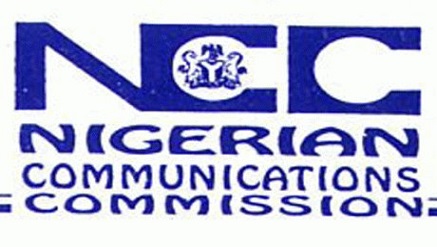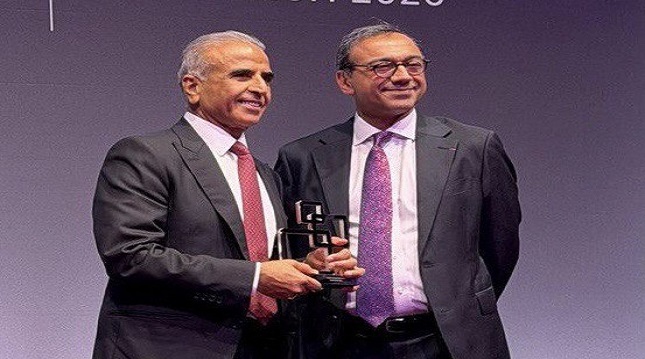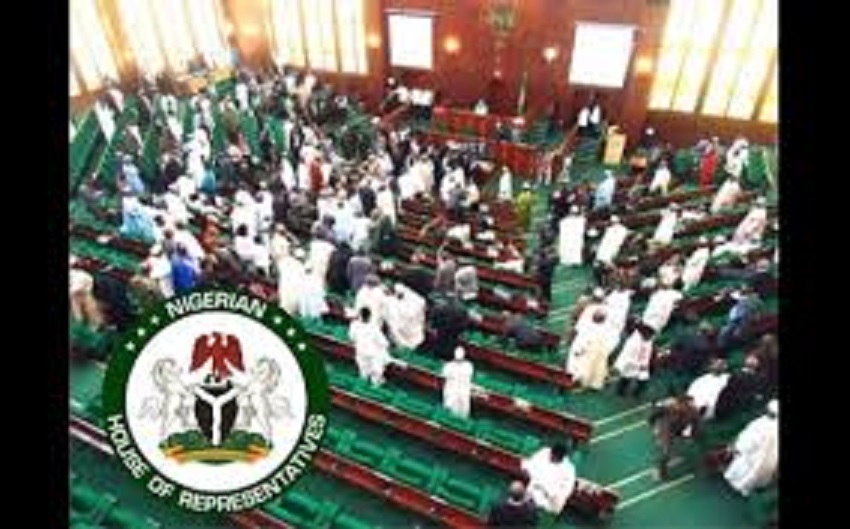Telecom
Buhari to Query Secret Sale of Over $1Bn Telecom Spectrums

Incoming government of Muhammadu Buhari is to focus his searchlight on the circumstances surrounding the secret sale of Digital Dividend Spectrum (DDS) licences valued at over $1 billion in the last few months by President Goodluck Jonathan, according to the Leadership Newspaper.
According to the Leadership Newspaper, the licensing did not pass through the normal bidding process, thereby preventing the NCC, the statutory body, from advertising and supervising a public auction.
Already, one of the terms of reference handed to the Alhaji Ahmed Joda-led transition committee last week was to provide a brief overview of the goings-on at the Nigerian Communications Commission (NCC), among other key government agencies, and provide quick-fixes within 30 days, 100 days and six months for the Buhari-led government.
According to an exclusive report published this week by online newspaper, Technology Times, ahead of the 2015 general elections, President Jonathan secretly sold two spectrums in the 800MH and 700MH to the chairman of Visafone, Mr Jim Ovia, and Otunba Mike Adenuga’s Globacom respectively without recourse to public auction.
Digital Dividend Spectrum allocation takes effect from 2015, in line with the dictate of the International Telecommunications Union (ITU) that television stations migrate from analogue to digital broadcasting from June 17, 2015.
DDS is released when television broadcasters switch from analog platforms to digital-only platforms; part of the electromagnetic spectrum that has been used for broadcasting will be freed up because digital TV needs fewer spectrums than analog television.
Already, the NCC is enmeshed in fresh crisis following the illegal and secret sale of a spectrum belonging to Nigerian Police to Open Skys Ltd as well as the secret sale of another spectrum to South African investors behind Smile Communications Ltd, one of the fourth generation network operators in the country.
According to the Leadership Newspaper, when contacted, the NCC director of public affairs, Mr Tony Ojobo, said he could not comment on the matter.
“I don’t have any information on it,” he said.
However, a top official of the Commission said the spectrum allocation followed a directive from the president.
“If the president orders you to allocate a certain spectrum, who are you not to obey?” he asked. “The directive came from the president and even the minister of communications technology cannot disobey it.
“Under normal circumstances, for NCC to sell a spectrum it should be by auction. But this is a directive from above.
Another source said the deal was done under the table on the expectation that the president would win his re-election.
He said NCC collaborated with the National Broadcasting Commission (NBC) on the belief that the proceeds of the sale of the spectrum licences would be deployed to fund the purchase of set-top boxes that would be used by Nigerians should the digital switchover take place on June 17, 2015.
The NBC has now shifted the switchover date to December 2017.
Calls to the spokesman of Globacom were not answered at the time of going to press.
Digital Dividend Spectrum is seen as a potential cash cow by telecom companies globally as it is used to deploy few base stations that provide voice, video and data communications at the highest broadband speeds.
A top telecom expert said the market had been bastardised, systematically distorted and disrupted whilst the investors are left guessing about the value of their investments.
“The president lacks the power under the law to make spectrum allocation,” he asserted. “The president can make policy, in the way provided for by the law, and ensure that those he appoints follow such public policy. Regulators are created around the world in order to protect players in the market, i.e. protect consumers of service, protect investors/operators and deliver government policy.
“The regulators are deliberately designed to be independent so that there is no political interference in their functions. The president or the minister is not to interfere with the functions of the regulator; in fact, section 25(2) of the NCC Act prohibits minister and, by extension the president, from interfering in NCC functions, and requires the minister and by extension president to ensure that NCC functions are independent of any political interference.”
According to the Leadership Newspaper, Dr Bashir Gwandu, a former executive commissioner at NCC, gave an interview in February 2012 highlighting what they had achieved at the ITU World Radio Communication Conference 2012 which led to the securing of additional 70MHz paired spectrum and 25MHz unpaired in the bands 700/850MHz, which span 700MHz, 800MHz and 900MHz Bands from the ITU .
It was the same spectrum whose allocation was secured by Dr Gwandu and his African team from the UN body that is in the spotlight again. In fact, it was the resistance of Gwandu to underselling, without competition, of part of the 800MHz and 450MHz that eventually led to his sack by President Jonathan.
Gwandu’s sack has since been declared illegal in the National Industrial Court ruling on Dr Bashir Gwandu v President, FRN (Jonathan) on January 21, 2014 where N100 million damages were awarded to Gwandu.
Of the three bands, the 800MHz, which had already been sold in controversial circumstances, was the one for which Gwandu was suppressed for attempting to blow the whistle.
He stood against the under-selling of a 10MHz slot in the 800MHz spectrum band to a South African company called Smile Communications Ltd at about €13 million only, when the exact equivalent spectrums were sold in Germany, Italy, France and UK for €1.153 billion, €992 million, €891 million and €631 million respectively, the UK earning slightly lower amount due to imposed strict coverage obligations.
In a related development, Belgium, a country of just 11 million people, raised €120million for each of the three slots of the 800MHz spectrum, generating a revenue of €360million.
And in a rather complicated mixture of 4G Spectrum slots, the Netherlands was only recently able to raise €3.8 billion from the 4G auction. So, each of the 10MHz paired spectrum slots in the 800MHz bands secured over a billion dollars for some countries in Europe.
The spectrum that was secured by Gwandu, totalling 70MHz duplex and 25MHz simplex, was 30MHz Duplex in the 700MHz band, 30MHz Duplex in the 800MHz band, 10MHz Duplex in the 900MHz band as well as 25MHz in the 700MHz simplex.
In particular, the specific bands are 703-733/758-788MHz, 791-721/832-862MHz, 880-890/925-935MHz, as well as 733-758MHz Simplex.
According to experts, each of the seven slots of 10MHz will fetch no less than $1billion in Germany for example.
Telecom
Konga Launches ‘Berekete Sales’ with Up to 50% Discounts Across Major Categories

Nigeria’s leading composite e-commerce platform, Konga, has announced the launch of its highly anticipated Berekete Sales, a nationwide promotional campaign designed to deliver exceptional value to customers across key product categories.

Konga Berekete
The initiative reinforces Konga’s commitment to affordability, accessibility, and innovation while strengthening its position as a trusted retail partner for millions of Nigerians.
The Berekete Sales campaign features discounts of up to 50% on high-demand categories including Home and Kitchen, Computing, Electronics, Beauty, and Personal Care.
Carefully curated to meet both everyday and aspirational needs, the campaign comes at a strategic period that coincides with Ramadan, Lent, and the approaching Eid al-Fitr celebrations, seasons traditionally associated with reflection, generosity, and family-oriented spending.
Speaking on the campaign, Victor Olaleye, Konga Group Head of Marketing, emphasised that the Berekete Sales initiative reflects the company’s understanding of the economic climate and the importance of value-driven retail experiences. “Berekete Sales is about delivering abundance in savings to our customers,” he stated.
“We recognise that this period is significant for many households observing Ramadan and Lent, and we want to ensure they can access premium products at competitive prices.
“Our goal remains to make quality products accessible while maintaining the seamless shopping experience Konga is known for.”
Among the standout offers is a special deal on the Starlink Gen 3 kit, now available at ₦550,000, reduced from its regular price of ₦590,000.
As the authorised distributor, Konga continues to provide customers with reliable access to the high-speed satellite internet solution, further strengthening connectivity options in Nigeria.
Activation services are available in select cities, ensuring a smooth transition to enhanced internet performance.
In addition, technology enthusiasts can take advantage of an exclusive offer on the Huawei Watch 3, with a special promotion that allows customers to receive two units for the price of one at ₦200,000.
This offer underscores Konga’s strategy of delivering premium lifestyle products with unmatched value.
The Berekete Sales campaign also extends to computing solutions, with attractive deals on ASUS laptops, catering to professionals, students, and businesses seeking performance-driven devices at competitive prices.
Furthermore, customers can pre-order the new Samsung Galaxy S26 Ultra on Konga and receive gift items worth over ₦500,000 from Samsung, a compelling incentive for early adopters and technology enthusiasts.
By aligning its promotional calendar with key religious seasons, Konga demonstrates cultural awareness while providing practical solutions for customers during Ramadan, Lenten observances, and Eid celebrations.
The campaign ensures that households can upgrade their living spaces, enhance productivity, and invest in quality lifestyle products without straining their budgets.
Beyond the discounts, Konga’s integrated ecosystem, spanning secure payment solutions, nationwide logistics, and reliable customer support, ensures a seamless shopping journey from browsing to delivery.
This operational strength continues to differentiate the brand within Nigeria’s competitive e-commerce landscape.
As consumer expectations evolve, Konga remains focused on delivering not just products but complete retail experiences anchored on trust, transparency, and value. The Berekete Sales campaign is positioned to drive significant traffic, boost sales volumes, and deepen brand loyalty across its growing customer base.
With substantial savings, premium product offerings, and time-sensitive deals, the Berekete Sales As the campaign gains momentum, customers are encouraged to visit Konga.com or any Konga retail store nationwide to take advantage of these limited-time offers.
With its blend of spiritual season sensitivity and high-tech accessibility, Konga continues to set the pace for the future of commerce in Africa.
Telecom
Sunil Bharti Mittal Conferred GSMA Lifetime Achievement Award for Transforming Global Telecommunications

The GSMA has conferred a rare Lifetime Achievement Award on Sunil Bharti Mittal, Founder and Chairman of Bharti Enterprises, recognising his role in reshaping the global telecommunications landscape and expanding connectivity across operators, governments, businesses and billions of consumers worldwide.

Bestowed on only a handful of industry leaders in the GSMA’s history, the honour recognises contributions that have left an enduring and defining mark on the global communications ecosystem.
The award was presented at Mobile World Congress in Barcelona in the distinguished presence of His Majesty Felipe VI, the Prime Minister of Spain, Pedro Sanchez, the President of Catalonia, Salvador Illa, and global industry leaders.
A visionary in the telecom sector, Sunil Bharti Mittal has built Bharti Airtel into one of the world’s leading mobile operators, with operations across India and Africa, ranking among the top three globally and serving over half a billion customers.
He pioneered the expansion of mobile services across emerging markets and served as Chairman of the GSMA from 2017 to 2018, where he championed policies that encouraged investment and innovation while strengthening the industry’s commitment to connecting the unconnected and advancing digital inclusion.
He was previously honoured with the GSMA Chairman’s Award in 2008 and again in 2016 for his outstanding contribution to the growth and development of the global mobile industry and was felicitated at Mobile World Congress in February 2019 in recognition of his Chairmanship.
On receiving the award, Sunil Bharti Mittal said, “I am deeply honoured to receive this recognition and sincerely thank the GSMA for this award. I accept it not only as a personal milestone, but as a tribute to India’s telecom journey, the collective spirit of Bharti, and the rise of Indian telecom companies on the global stage.
Equally the award reflects the progress of an industry that has connected billions and belongs to the customers we serve, the teams who built our institutions, and the partners who believe in the transformative power of connectivity.
Telecommunication is a force that expands opportunity, places essential services in the palm of every individual and unlocks human potential. Helping shape its evolution into a powerful accelerator of modern progress has been a privileged responsibility. As innovation accelerates, we will continue to work with our partners & stakeholders to ensure that growth advances equity and creates lasting opportunity for generations to come.”
The Lifetime Achievement Award is a rare honour, bestowed only on select individuals whose leadership and innovation have left an enduring mark on the industry.
Telecom
House Probes Fintech Regulation via Public Hearing on New Commission Bill

House of Representatives is pushing to regulate Nigeria’s fintech sector through a public hearing on “A Bill for an Act to Establish the Nigerian Fintech Regulatory Commission and for Related Matters (HB.2389).”

Speaker Tajudeen Abbas opened the hearing, stressing the need for stakeholder inputs to craft enforceable, constitutional laws addressing regulatory overlaps in digital banking, science, technology, and communications.
Abbas highlighted fintech’s role in Nigeria’s growth via digital payments, blockchain, crowdfunding, and financial inclusion for the unbanked, creating jobs and supporting SMEs under President Tinubu’s Renewed Hope Agenda.
He warned that lagging regulations cause fragmentation, compliance issues, and investor uncertainty, necessitating a coordinating commission for licensing, supervision, standards, and a level playing field without duplicating bodies like the Central Bank of Nigeria (CBN), SEC, NITDA, or NDIC.
The commission would protect consumers, monitor cybersecurity, ensure data privacy, and promote education while complementing existing regulators.
Committee Chairman Emmanuel Ukpong-Udo, overseeing digital banking, banking regulations, science, technology, communications, capital markets, and institutions, called the bill vital for harmonizing oversight amid Nigeria’s rise as Africa’s fintech hub with 430+ firms valued at billions.
Ukpong-Udo emphasized balancing innovation, stability, and coordination to avoid burdens on startups.
Bill sponsor Fuad Kayode Laguda argued the commission would streamline operations currently split among CBN, SEC, NITDA, NOTAP, and FIRS, boosting profitability, user security, and ease of business. He cited 2024-2026 stats: 250-430 firms, $230 billion market projection, $10.6 billion valuation for top nine, and $1.6 billion in mobile transactions.
Fintech stakeholders offered mixed views, with some backing unified regulation and others fearing overlaps with current mandates.

 E-Financial3 days ago
E-Financial3 days agoIran-Israel-US Conflict and CBN’s FX Gains: A Stress Test for Nigeria’s Monetary Stability

 E-Financial3 days ago
E-Financial3 days agoMutual Benefits Assurance Reaffirms Full Regulatory Compliance, Enhanced Governance

 General News3 days ago
General News3 days agoJAMB Uncovers AI-Driven Fraud Targeting UTME Candidates, Warns Parents

 General News3 days ago
General News3 days agoSERAP Asks FCCPC to Investigate Google, Meta, Others over Alleged Rights Abuses

 Telecom2 days ago
Telecom2 days agoSunil Bharti Mittal Conferred GSMA Lifetime Achievement Award for Transforming Global Telecommunications

 News3 days ago
News3 days agoTeamApt, Awabah Partner to Boost Pension Drive for Nigerians

 News3 days ago
News3 days agoFlashChange CEO, Bidemi Oke, Urges Startups to Build Strong Governance Structures Early

 Telecom2 days ago
Telecom2 days agoWhy Digital Trust Matters: Secure, Responsible AI for African SMEs?


























